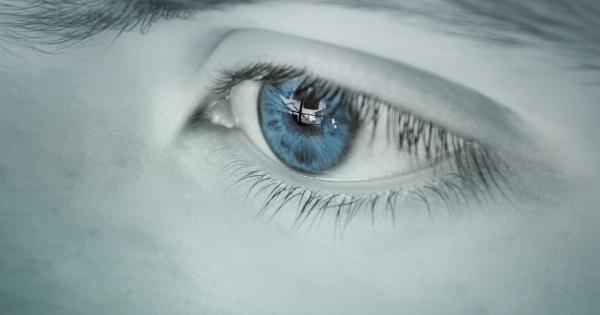Regular mammograms are an essential tool for early detection of breast cancer. However, the high cost of diagnostic procedures can pose a financial burden for many women.
Fortunately, there are organizations and programs that offer free digital mammography services to uninsured or underinsured women. In this article, we will explore where to find these free digital mammography options and how to take advantage of them.
1. National Breast and Cervical Cancer Early Detection Program (NBCCEDP)
The NBCCEDP is a nationwide program that helps low-income, uninsured, or underinsured women gain access to free or low-cost mammograms and cervical cancer screenings.
This program is funded by the Centers for Disease Control and Prevention (CDC) and provides services through a network of clinics, hospitals, and healthcare providers across the United States. To find a local participating facility, eligible women can visit the CDC’s website or call their toll-free number.
2. Susan G. Komen Breast Cancer Foundation
The Susan G. Komen Breast Cancer Foundation is a renowned organization dedicated to eradicating breast cancer. Apart from funding research and educational programs, they also offer financial assistance to women who cannot afford mammograms.
Their local affiliate offices often collaborate with healthcare providers and community clinics to provide free or low-cost screenings. To find out more about these services, potential applicants can reach out to their local Susan G. Komen office or visit their website.
3. American Cancer Society (ACS)
The American Cancer Society is another reputable organization that strives to eliminate cancer through research, education, and support. The ACS has various programs and initiatives aimed at increasing access to vital screenings.
They work in partnership with local clinics, community health centers, and hospitals to provide free mammograms to eligible women. Interested individuals can visit the ACS website or contact their local chapter to inquire about local resources.
4. Breast Cancer Foundations and Charities
Multiple breast cancer foundations and charities across the country offer free mammography services as part of their outreach programs.
These organizations often partner with medical institutions, imaging centers, and radiology clinics to provide complimentary screenings to women in need. Some examples of such foundations include the National Breast Cancer Foundation and the Breast Cancer Research Foundation. To find out if these organizations operate in your area, consult their websites or reach out directly.
5. Mobile Mammography Services
In an effort to make mammograms more accessible, many regions offer mobile mammography services.
These units are equipped with advanced digital imaging technology and can travel to different locations, such as community centers, local businesses, and churches. They reach out to underprivileged communities and provide free screenings on-site. Checking with local health departments, nonprofit healthcare providers, or hospitals can help you locate mobile mammography services near you.
6. State and Local Health Departments
State and local health departments often have programs in place to promote breast health and offer free or low-cost mammograms.
They may collaborate with various healthcare providers or maintain their own clinics where women can access no-cost screenings. These departments also provide valuable information on breast cancer awareness, prevention, and early detection. To find your nearest state or local health department, visit the official website of your state’s Department of Health.
7. Clinical Research Trials
Participating in clinical research trials can sometimes provide eligible individuals with access to free or heavily subsidized mammograms.
Researchers conducting clinical trials related to breast cancer may require participants for various stages of the study. As part of the trial, individuals may receive free medical services, including mammography screenings. Exploring clinical trial databases or contacting local research institutions can help you find potential opportunities in your area.
8. Nonprofit Organizations and Community Health Fairs
Nonprofit organizations and community health fairs often organize events that offer free or discounted mammograms. Such events are usually held in collaboration with medical professionals who generously volunteer their services.
These organizations and health fairs aim to raise awareness about breast cancer and provide essential screenings to underserved populations. Keeping an eye on local community bulletin boards, newspaper advertisements, or websites dedicated to local events can help you discover these opportunities.
9. Employer-sponsored Programs
Some employers offer wellness programs that include free or heavily subsidized mammograms for their employees. These programs prioritize preventive care and early detection, recognizing that healthy employees are an asset to their workforce.
If you are uninsured or have limited coverage, inquire whether your employer provides any wellness initiatives or partnerships with healthcare providers that could enable you to get a mammogram with minimal or no cost.
10. Planned Parenthood
Planned Parenthood is an organization that primarily focuses on reproductive healthcare services.
While they are known for providing contraceptive options, family planning, and sexual health screenings, several Planned Parenthood clinics also offer free or low-cost mammograms. These facilities cater to women from diverse socioeconomic backgrounds, ensuring that they have access to important screenings. Contact your nearest Planned Parenthood clinic to learn about their availability of free mammography services.
Conclusion
Access to free digital mammography is vital for ensuring that all women, regardless of financial circumstances, can receive regular breast cancer screenings.
Through a combination of government-funded programs, nonprofit organizations, and community initiatives, numerous options are available to help eligible women obtain these screenings. By taking advantage of these resources, women can prioritize their health and detect potential breast cancer in its early stages, significantly improving their chances of successful treatment.



























